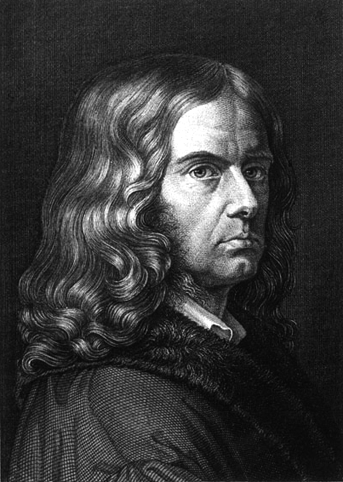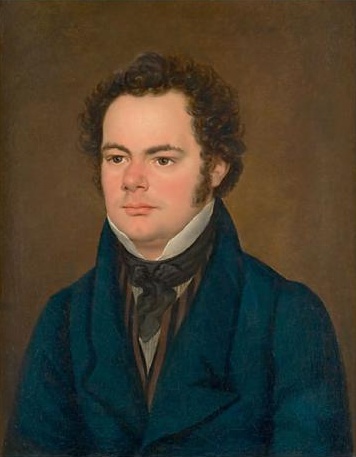|
Song-cycle
A song cycle (german: Liederkreis or Liederzyklus) is a group, or cycle, of individually complete songs designed to be performed in a sequence as a unit.Susan Youens, ''Grove online'' The songs are either for solo voice or an ensemble, or rarely a combination of solo songs mingled with choral pieces. The number of songs in a song cycle may be as brief as two songs or as long as 30 or more songs. The term "song cycle" did not enter lexicography until 1865, in Arrey von Dommer's edition of ''Koch’s Musikalisches Lexikon'', but works definable in retrospect as song cycles existed long before then. One of the earliest examples may be the set of seven Cantigas de amigo by the 13th-century Galician jongleur Martin Codax. Jeffrey Mark identified the group of dialect songs 'Hodge und Malkyn' from Thomas Ravenscroft's ''The Briefe Discourse'' (1614) as the first of a number of early 17th Century examples in England. A song cycle is similar to a song collection, and the two can be d ... [...More Info...] [...Related Items...] OR: [Wikipedia] [Google] [Baidu] |
Frauenliebe Und -leben
''Frauen-Liebe und Leben'' (''A Woman's Love and Life'') is a cycle of poems by Adelbert von Chamisso, written in 1830. They describe the course of a woman's love for her man, from her point of view, from first meeting through marriage to his death, and after. Selections were set to music as a song-cycle by masters of German Lied, namely Carl Loewe (1836), Franz Lachner (c1839), and Robert Schumann (1840). The setting by Schumann (his opus 42) is now the most widely known. Chamisso's poems There are nine lyrics in the cycle, to which Chamisso gave the title ''Frauen-Liebe und Leben''. It was first published in 1830, and twice in 1831 in the first editions of his poetry, and of his complete works. Schumann in his cycle did not set the final stanza of No. 2 ('Er, der Herrlichste von allen') with its sudden change of mood. He also left out the last poem, No. 9 'Traum der eignen Tage', which is addressed to the now aged protagonist's granddaughter ("''Tochter meiner Tochter''"). Loe ... [...More Info...] [...Related Items...] OR: [Wikipedia] [Google] [Baidu] |
Gustav Mahler
Gustav Mahler (; 7 July 1860 – 18 May 1911) was an Austro-Bohemian Romantic composer, and one of the leading conductors of his generation. As a composer he acted as a bridge between the 19th-century Austro-German tradition and the modernism of the early 20th century. While in his lifetime his status as a conductor was established beyond question, his own music gained wide popularity only after periods of relative neglect, which included a ban on its performance in much of Europe during the Nazi era. After 1945 his compositions were rediscovered by a new generation of listeners; Mahler then became one of the most frequently performed and recorded of all composers, a position he has sustained into the 21st century. Born in Kingdom of Bohemia, Bohemia (then part of the Austrian Empire) to Ashkenazi Jews, Jewish parents of humble origins, the German-speaking Mahler displayed his musical gifts at an early age. After graduating from the University of Music and Performing Arts, Vien ... [...More Info...] [...Related Items...] OR: [Wikipedia] [Google] [Baidu] |
Winterreise
''Winterreise'' (, ''Winter Journey'') is a song cycle for voice and piano by Franz Schubert ( D. 911, published as Op. 89 in 1828), a setting of 24 poems by German poet Wilhelm Müller. It is the second of Schubert's two song cycles on Müller's poems, the earlier being '' Die schöne Müllerin'' (D. 795, Op. 25, 1823). Both were originally written for tenor voice but are frequently transposed to other vocal ranges, a precedent set by Schubert himself. The two works pose interpretative demands on listeners and performers due to their scale and structural coherence. Although Ludwig van Beethoven's cycle '' An die ferne Geliebte'' (''To the Distant Beloved'') was published earlier, in 1816, Schubert's cycles hold the foremost place in the genre's history. Authorship and composition ''Winterreise'' was composed in two parts, each with twelve songs, the first part in February 1827 and the second in October 1827. The two parts were also published separately by Tobias Haslinger, ... [...More Info...] [...Related Items...] OR: [Wikipedia] [Google] [Baidu] |
Lieder Eines Fahrenden Gesellen
''Lieder eines fahrenden Gesellen'' (''Songs of a Wayfarer'') is a song cycle by Gustav Mahler on his own texts. The cycle of four ''lieder'' for medium voice (often performed by women as well as men) was written around 1884–85 in the wake of Mahler's unhappy love for soprano Johanna Richter, whom he met while conductor of the opera house in Kassel, Germany, and orchestrated and revised in the 1890s. Introduction The work's compositional history is complex and difficult to trace. Mahler appears to have begun composing the songs in December 1884 and to have completed them in 1885. He subjected the score to a great deal of revision, probably between 1885 and 1886, and some time in the early 1890s orchestrated the original piano accompaniments. As a result of this situation, various discrepancies exist between the different sources. It appears to have been in the orchestral version that the cycle was first performed on 16 March 1896 by the Dutch baritone Anton Sistermans with th ... [...More Info...] [...Related Items...] OR: [Wikipedia] [Google] [Baidu] |
Thomas Ravenscroft
Thomas Ravenscroft ( – 1635) was an English musician, theorist and editor, notable as a composer of rounds and catches, and especially for compiling collections of British folk music. Little is known of Ravenscroft's early life. He probably sang in the choir of St. Paul's Cathedral from 1594, when a ''Thomas Raniscroft'' was listed on the choir rolls and remained there until 1600 under the directorship of Thomas Giles. He received his bachelor's degree in 1605 from Cambridge. Ravenscroft's principal contributions are his collections of folk music, including catches, rounds, street cries, vendor songs, "freeman's songs" and other anonymous music, in three collections: '' Pammelia'' (1609), ''Deuteromelia'' or ''The Second Part of Musicks Melodie'' (1609) and ''Melismata'' (1611), which contains one of the best-known works in his collections, The Three Ravens. Some of the music he compiled has acquired extraordinary fame, though his name is rarely associated with the mu ... [...More Info...] [...Related Items...] OR: [Wikipedia] [Google] [Baidu] |
Robert Schumann
Robert Schumann (; 8 June 181029 July 1856) was a German composer, pianist, and influential music critic. He is widely regarded as one of the greatest composers of the Romantic era. Schumann left the study of law, intending to pursue a career as a virtuoso pianist. His teacher, Friedrich Wieck, a German pianist, had assured him that he could become the finest pianist in Europe, but a hand injury ended this dream. Schumann then focused his musical energies on composing. In 1840, Schumann married Friedrich Wieck's daughter Clara Wieck, after a long and acrimonious legal battle with Friedrich, who opposed the marriage. A lifelong partnership in music began, as Clara herself was an established pianist and music prodigy. Clara and Robert also maintained a close relationship with German composer Johannes Brahms. Until 1840, Schumann wrote exclusively for the piano. Later, he composed piano and orchestral works, and many Lieder (songs for voice and piano). He composed four symp ... [...More Info...] [...Related Items...] OR: [Wikipedia] [Google] [Baidu] |
Schwanengesang
''Schwanengesang (Swan Song)'', 957, is a collection of 14 songs written by Franz Schubert at the end of his life and published posthumously: # Liebesbotschaft (text: Ludwig Rellstab) # Kriegers Ahnung (Rellstab) # Frühlingssehnsucht (Rellstab) # Ständchen (Rellstab) # Aufenthalt (Rellstab) # In der Ferne (Rellstab) # Abschied (Rellstab) # Der Atlas (Heinrich Heine) # Ihr Bild (Heine) # Das Fischermädchen (Heine) # Die Stadt (Heine) # Am Meer (Heine) # Der Doppelgänger (Heine) # Die Taubenpost (alternative: D 965a) ( Johann Gabriel Seidl) Background Named by its first publisher, Tobias Haslinger, who presumably wished to present it as Schubert's last testament, ''Schwanengesang'' differs from the earlier ''Die schöne Müllerin'' and ''Winterreise'' song-cycles by including settings of more than one poet. Seven texts by Ludwig Rellstab (1799–1860) are followed by six by Heinrich Heine (1797–1856); inclusion of the last song, to words by Johann Gabriel Seidl (1804–187 ... [...More Info...] [...Related Items...] OR: [Wikipedia] [Google] [Baidu] |
Die Schöne Müllerin
' (,"The Fair Maid of the Mill", Op. 25, D. 795), is a song cycle by Franz Schubert from 1823 based on 20 poems by Wilhelm Müller. It is the first of Schubert's two seminal cycles (preceding ''Winterreise'')'','' and a pinnacle of ''Lied'' repertoire. ''Die schöne Müllerin'' is performed by a pianist and a solo singer. The vocal part falls in the range of a tenor or soprano voice, but is often sung by other voices, transposed to a lower range, a precedent established by Schubert himself. Since the protagonist is a young man, performances by women's voices are less common. The piano part bears much of the expressive burden of the work, and is only seldom a mere 'accompaniment' to the singer. A typical performance lasts around sixty to seventy minutes. Composition Müller published twenty-five poems in the first fascicule (1821) of ''Sieben und siebzig Gedichten aus den nachgelassenen Papieren eines reisenden Waldhornisten'' (Seventy-seven Poems from the Posthumous Papers o ... [...More Info...] [...Related Items...] OR: [Wikipedia] [Google] [Baidu] |
Vier Ernste Gesänge
''Vier ernste Gesänge'' (''Four Serious Songs''), Op. 121, is a cycle of four songs for bass and piano by Johannes Brahms. As in his ''Ein deutsches Requiem'', the texts are compiled from the Luther Bible. Three songs deal with death and the transience of life, while the fourth has an outlook of faith, hope and charity. Brahms composed the work in Vienna in 1896 and dedicated it to Max Klinger. The songs were premiered there in the presence of the composer by baritone Anton Sistermans and pianist Coenraad V. Bos. They have been recorded often by both female and male singers. History Between 1865 and 1868, as a young man, Brahms had composed ''Ein deutsches Requiem'' (''A German Requiem''), dealing with death, based on a compilation of biblical quotations in Luther's translation. He wrote ''Vier ernste Gesänge'' late in life, again on words from the Bible. His friend Clara Schumann had suffered a stroke on 26March 1896. Brahms completed the composition of this set of songs ... [...More Info...] [...Related Items...] OR: [Wikipedia] [Google] [Baidu] |
Ludwig Tieck
Johann Ludwig Tieck (; ; 31 May 177328 April 1853) was a German poet, fiction writer, translator, and critic. He was one of the founding fathers of the Romantic movement in the late 18th and early 19th centuries. Early life Tieck was born in Berlin, the son of a rope-maker. His siblings were the sculptor Christian Friedrich Tieck and the poet Sophie Tieck. He was educated at the , where he learned Greek and Latin, as required in most preparatory schools. He also began learning Italian at a very young age, from a grenadier with whom he became acquainted. Through this friendship, Tieck was given a first-hand look at the poor, which could be linked to his work as a Romanticist. He later attended the universities of Halle, Göttingen, and Erlangen. At Göttingen, he studied Shakespeare and Elizabethan drama. On returning to Berlin in 1794, Tieck attempted to make a living by writing. He contributed a number of short stories (1795–98) to the series ''Straussfedern'', publis ... [...More Info...] [...Related Items...] OR: [Wikipedia] [Google] [Baidu] |
Johannes Brahms
Johannes Brahms (; 7 May 1833 – 3 April 1897) was a German composer, pianist, and conductor of the mid- Romantic period. Born in Hamburg into a Lutheran family, he spent much of his professional life in Vienna. He is sometimes grouped with Johann Sebastian Bach and Ludwig van Beethoven as one of the " Three Bs" of music, a comment originally made by the nineteenth-century conductor Hans von Bülow. Brahms composed for symphony orchestra, chamber ensembles, piano, organ, violin, voice, and chorus. A virtuoso pianist, he premiered many of his own works. He worked with leading performers of his time, including the pianist Clara Schumann and the violinist Joseph Joachim (the three were close friends). Many of his works have become staples of the modern concert repertoire. Brahms has been considered both a traditionalist and an innovator, by his contemporaries and by later writers. His music is rooted in the structures and compositional techniques of the Classical masters. E ... [...More Info...] [...Related Items...] OR: [Wikipedia] [Google] [Baidu] |
Joseph Freiherr Von Eichendorff
Joseph Freiherr von Eichendorff (10 March 178826 November 1857) was a German poet, novelist, playwright, literary critic, translator, and anthologist. Eichendorff was one of the major writers and critics of Romanticism.Cf. J. A. Cuddon: ''The Penguin Dictionary of Literary Terms and Literary Theory'', revised by C. E. Preston. London 1999, p. 770. Ever since their publication and up to the present day, some of his works have been very popular in Germany. Eichendorff first became famous for his 1826 novella '' Aus dem Leben eines Taugenichts'' (freely translated: ''Memoirs of a Good-for-Nothing'') and his poems. The ''Memoirs of a Good-for-Nothing'' is a typical Romantic novella whose main themes are wanderlust and love. The protagonist, the son of a miller, rejects his father's trade and becomes a gardener at a Viennese palace where he subsequently falls in love with the local duke's daughter. As, with his lowly status, she is unattainable for him, he escapes to Italy – o ... [...More Info...] [...Related Items...] OR: [Wikipedia] [Google] [Baidu] |







